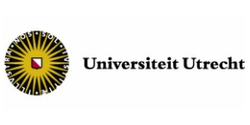PhD Position on Reconstructing Himalayan Precipitation Change
Updated: 08 Feb 2025
The Departments of Earth Sciences and Physical Geography are looking for a highly motivated PhD candidate with a MSc background in Earth Sciences, Environmental sciences, Geochemistry or other appropriate fields. You will work on the project “Impacts of changes in the Indian Summer Monsoon on Himalayan precipitation”.
Your job
Precipitation in the Himalaya is both a vital water resource for millions of people downstream and a frequent cause of disasters such as flood, landslide, debris-flows and avalanches. Ongoing warming impacts the large-scale atmospheric circulation systems, such as the Indian Summer Monsoon (ISM) that regulates the Himalayan precipitation patterns. However, instrumental records of precipitation changes in the Himalaya are scarce due to the challenging observational conditions in this area. In this 4-year study, you will reconstruct ISM precipitation changes over the past ~100-1000 years, based on lipid biomarkers and their isotopic composition stored in lake sediments along an elevation transect in the central Himalaya in Nepal. The biomarker records should reveal changes in precipitation amount and source over time and space, and provide unique insights in historical precipitation changes in the central Himalaya and the potential impact of global warming on large-scale circulation patterns such as the ISM.
A personalised training programme will be set up, reflecting your training needs and career objectives. About 20% of your time will be dedicated to this training component, which includes training on the job in assisting in the Bachelor’s and Master’s programmes of the departments at Utrecht University.
Requirements:
We welcome a motivated team-player who recognizes themselves in the following description:
You have completed an MSc degree in Earth Sciences, Environmental Sciences, Geochemistry, or a related discipline by the time the position starts. Preferably, you will also have:
- experience with working in a (wet chemistry) laboratory;
- experience with programming in Python, R, or a similar language;
- motivation and willingness to organise and carry out fieldwork in high elevation, mountainous terrain;
- motivation to cooperate in a diverse and multidisciplinary research team;
- strong social and communication skills.
Due to the international character of our research, good command of spoken and written English is essential. We highly encourage applicants from all members of our community and of diverse backgrounds to join us.
Salary Benefits:
We offer:
- a position for one year, with an extension to a total of four years upon a successful assessment in the first year, and with the specific intent that it results in a doctorate within this period;
- a working week of 36 hours and a gross monthly salary between €2,901 and €3,707 in the case of full-time employment (salary scale P under the Collective Labour Agreement for Dutch Universities (CAO NU));
- 8% holiday pay and 8.3% year-end bonus;
- a pension scheme, partially paid parental leave and flexible terms of employment based on the CAO NU.
In addition to the terms of employment laid down in the CAO NU, Utrecht University has a number of schemes and facilities of its own for employees. This includes schemes facilitating professional development, leave schemes and schemes for sports and cultural activities, as well as discounts on software and other IT products. We also offer access to additional employee benefits through our Terms of Employment Options Model. In this way, we encourage our employees to continue to invest in their growth. For more information, please visit Working at Utrecht University.
36 - 40 hours per week
Princetonlaan 8a

